Hyundai Kona vs Subaru Forester – Differences & prices compared
Both models have their strengths – but which one suits you more?
Compare performance, efficiency, price and space directly: Hyundai Kona or Subaru Forester?
Costs and Efficiency:
Looking at overall running costs, both models reveal some interesting differences in everyday economy.
Hyundai Kona has a convincingly advantage in terms of price – it starts at 23100 £, while the Subaru Forester costs 34700 £. That’s a price difference of around 11648 £.
Fuel consumption also shows a difference: Hyundai Kona manages with 4.60 L and is therefore clearly more efficient than the Subaru Forester with 8.10 L. The difference is about 3.50 L per 100 km.
Engine and Performance:
Power, torque and acceleration say a lot about how a car feels on the road. This is where you see which model delivers more driving dynamics.
When it comes to engine power, the Hyundai Kona has a noticeable edge – offering 218 HP compared to 136 HP. That’s roughly 82 HP more horsepower.
In acceleration from 0 to 100 km/h, the Hyundai Kona is clearly quicker – completing the sprint in 7.80 s, while the Subaru Forester takes 12.20 s. That’s about 4.40 s faster.
In terms of top speed, the Hyundai Kona performs to a small extent better – reaching 210 km/h, while the Subaru Forester tops out at 188 km/h. The difference is around 22 km/h.
There’s also a difference in torque: Hyundai Kona pulls evident stronger with 265 Nm compared to 182 Nm. That’s about 83 Nm difference.
Space and Everyday Use:
Whether family car or daily driver – which one offers more room, flexibility and comfort?
Both vehicles offer seating for 5 people.
In curb weight, Hyundai Kona is clearly perceptible lighter – 1370 kg compared to 1693 kg. The difference is around 323 kg.
In terms of boot space, the Subaru Forester offers minimal more room – 508 L compared to 466 L. That’s a difference of about 42 L.
In maximum load capacity, the Subaru Forester performs clearly perceptible better – up to 1731 L, which is about 431 L more than the Hyundai Kona.
When it comes to payload, Subaru Forester minimal takes the win – 492 kg compared to 490 kg. That’s a difference of about 2 kg.
Who comes out on top?
Overall, the Hyundai Kona shows itself to be outperforms in nearly all aspects and secures the title of DriveDuel Champion.
It convinces with the more balanced overall package and proves to be the more versatile choice for everyday use.

Hyundai Kona
Hyundai Kona
The Hyundai Kona blends a bold design with a versatile interior, making it a standout choice in the compact SUV market. Its crisp handling and responsive steering provide an engaging driving experience, whether in the city or on the open road. The vehicle also offers a range of features designed to enhance comfort and connectivity, ensuring a pleasurable journey for both driver and passengers.
details @ hyundai.news
@ hyundai.news
 @ hyundai.news
@ hyundai.news
 @ hyundai.news
@ hyundai.news
 @ hyundai.news
@ hyundai.news
Subaru Forester
The Subaru Forester is a versatile SUV known for its impressive off-road capabilities and practical design. With a spacious interior and advanced safety features, it offers comfort and security for both city driving and outdoor adventures. Its reliable performance and all-wheel-drive system make it a popular choice among those who appreciate a combination of functionality and rugged charm.
details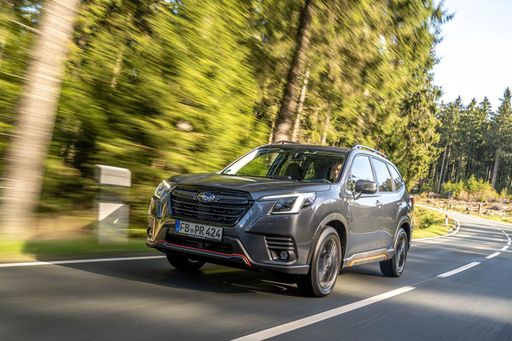 @ Subaru
@ Subaru
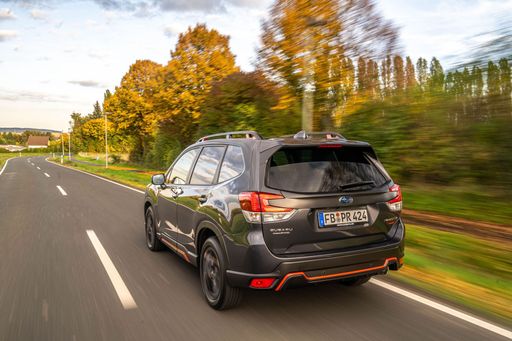 @ Subaru
@ Subaru
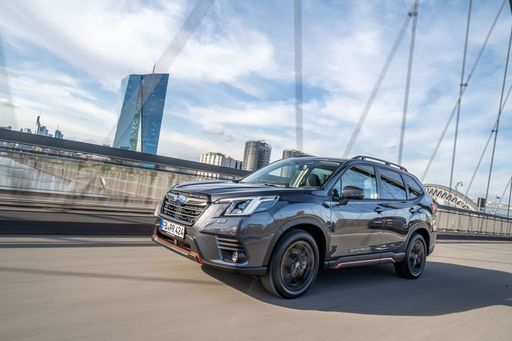 @ Subaru
@ Subaru
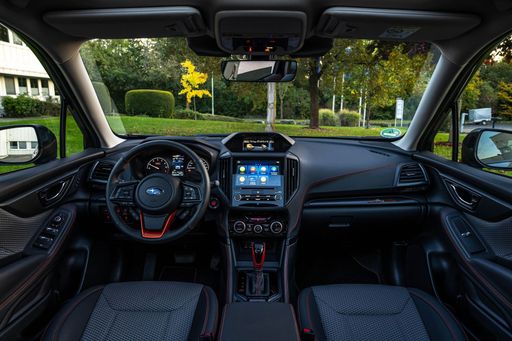 @ Subaru
@ Subaru
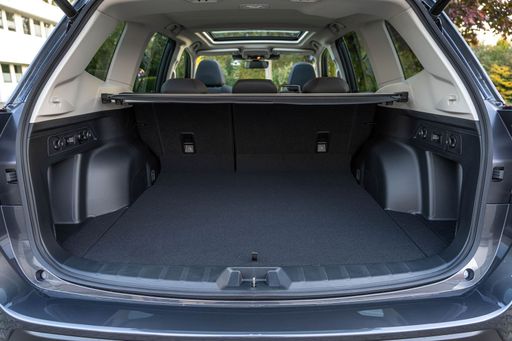 @ Subaru
@ Subaru

|

|
|
|
|
Costs and Consumption |
|
|---|---|
|
Price
23100 - 41600 £
|
Price
34700 - 42200 £
|
|
Consumption L/100km
4.6 - 7 L
|
Consumption L/100km
8.10 L
|
|
Consumption kWh/100km
14.6 - 16.8 kWh
|
Consumption kWh/100km
-
|
|
Electric Range
377 - 514 km
|
Electric Range
-
|
|
Battery Capacity
1.3 - 65.4 kWh
|
Battery Capacity
-
|
|
co2
0 - 163 g/km
|
co2
183 g/km
|
|
Fuel tank capacity
38 - 47 L
|
Fuel tank capacity
48 L
|
Dimensions and Body |
|
|---|---|
|
Body Type
SUV
|
Body Type
SUV
|
|
Seats
5
|
Seats
5
|
|
Doors
5
|
Doors
5
|
|
Curb weight
1370 - 1773 kg
|
Curb weight
1693 - 1739 kg
|
|
Trunk capacity
466 L
|
Trunk capacity
508 L
|
|
Length
4350 - 4385 mm
|
Length
4670 mm
|
|
Width
1825 mm
|
Width
1830 mm
|
|
Height
1580 - 1585 mm
|
Height
1730 mm
|
|
Max trunk capacity
1300 L
|
Max trunk capacity
1679 - 1731 L
|
|
Payload
420 - 490 kg
|
Payload
446 - 492 kg
|
Engine and Performance |
|
|---|---|
|
Engine Type
Electric, Petrol, Full Hybrid
|
Engine Type
Petrol MHEV
|
|
Transmission
Automatic, Manuel
|
Transmission
Automatic
|
|
Transmission Detail
Manual Gearbox, Dual-Clutch Automatic
|
Transmission Detail
CVT
|
|
Drive Type
Front-Wheel Drive, All-Wheel Drive
|
Drive Type
All-Wheel Drive
|
|
Power HP
115 - 218 HP
|
Power HP
136 HP
|
|
Acceleration 0-100km/h
7.8 - 11.9 s
|
Acceleration 0-100km/h
12.20 s
|
|
Max Speed
162 - 210 km/h
|
Max Speed
188 km/h
|
|
Torque
200 - 265 Nm
|
Torque
182 Nm
|
|
Number of Cylinders
3 - 4
|
Number of Cylinders
4
|
|
Power kW
85 - 160 kW
|
Power kW
100 kW
|
|
Engine capacity
998 - 1598 cm3
|
Engine capacity
1995 cm3
|
General |
|
|---|---|
|
Model Year
2024 - 2025
|
Model Year
2025
|
|
CO2 Efficiency Class
A, D, C, E, F
|
CO2 Efficiency Class
G
|
|
Brand
Hyundai
|
Brand
Subaru
|
Is the Hyundai Kona offered with different drivetrains?
Available configurations include Front-Wheel Drive or All-Wheel Drive.
The prices and data displayed are estimates based on German list prices and may vary by country. This information is not legally binding.
